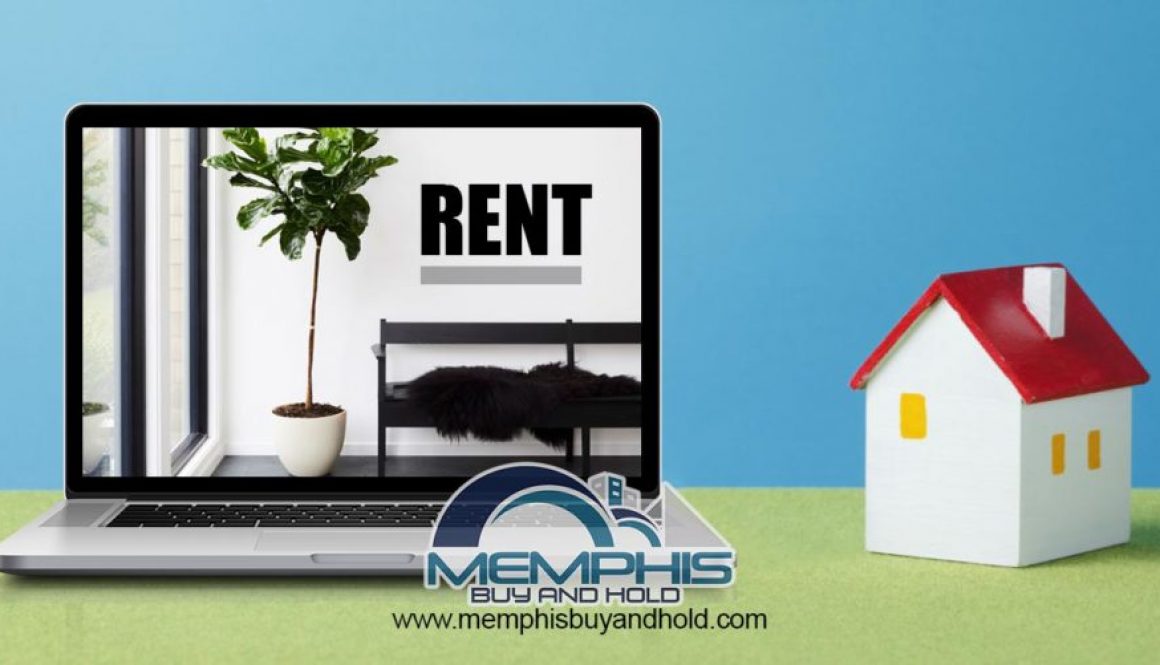
Automation and optimization are arguably two of my favorite things—particularly when it comes to being a landlord. I’ve slowly arrived at the system I use today by finding and addressing capability gaps in my processes.
Largely through the use of technology, I’ve eliminated a lot of the headaches that once accompanied owning rental properties. Below I’ve outlined the mostly hands-off approach I now use to take care of many of my landlording duties.
1. Do Video Walk-Throughs of Properties
I invest all over the place, but part of my portfolio is near a few military bases. When I market a property (not just near military bases), I often speak to a prospect who perhaps can’t make a showing time or isn’t even living in town yet. Offering a video walk-through has helped save a lot of people time and money in the rental process (including me).
Video walk-throughs can be helpful when it comes to move-outs, too. I personally recommend documenting property conditions in between each tenant so you have video evidence of any changes made or damages incurred.
2. Save Property Photos and Descriptions
When listing a property, the easiest way to create a description is to pull from the original selling listing. All the perks the seller and realtor thought would attract potential buyers are right there, already spelled out. Of course, some listings aren’t all-inclusive and you may have made upgrades post-purchase, but simply change the description accordingly.
Be sure to mention any of the more rental-friendly amenities and features that may have been excluded from seller listings, like garages, washers/dryers, and fenced yards, and note utilities that are paid for, online rent payment systems, if pets are accepted, etc. All of these things are very attractive to renters but may have been less important to buyers.
You can likely use the property pictures from the seller listing, too. To ensure you don’t violate any photo rights, just ask. I always ask if I can have the rights to the photos in the listing in writing. I’ve never been told no and am essentially getting professional photography for free.
3. Store a Bank of Ready-to-Go Documents
Leases with proper addenda, lease termination documents, notices to quit, etc.—these should be ready to go whenever you need them. Things like animal agreements, inspection checklists for moving in and out, and cleaning checklists for move-out are all useful to have, and with electronic storage, they’re all just a few clicks away.
When doing a landlord inquiry, many companies require tenants to fill out a signed authorization to release information about their tenancy. All of these documents at-the-ready will save time and money.
Also consider ready-to-send emails. I have an email template for landlord inquiries, supervisor/personal references, and so on. No more composing similar notes again and again.
If managing properties directly, create a checklist for yourself. After the 10th lease, it’s easy to think you have it down and won’t skip a step. Having a checklist ensures you follow the proper leasing steps and look professional.
Documentation is key. Your checklist will help you remember to make sure a lease is signed and initialed properly, ensure pictures are taken at move-in and move-out, and more. Scan and save invoices as they come in, too, and create documents to track all your expenses and income.
4. Allow Online Rent Payments
There are so many free and/or low-fee online tenant payment sites out there today. I absolutely allow electronic payments; rent payments conveniently appear in my bank account a few days after they are made by the tenant.
Be sure to pick a platform that has sufficient and prompt customer service, though. I’ve had tenants who accidentally submitted rent payments twice, and it took quite a while for their account to be refunded due to poor customer service.
I’ve since used another service with great success and had my eye on another free site called Cozy. Cozy is a unique service in that it allows tenants to build credit with their payments, which is hugely attractive to those looking to improve their score.
5. Keep a Business Calendar
Do your tenants need to replace their HVAC filters on their own? Send them a reminder every quarter if so.
If not, schedule a quarterly walk-through with your maintenance crew so they can replace the filters themselves and make sure the property is being kept up to standards. This can prevent massive issues in the long run.
How long do tenants have to let you know about lease renewal or expiration? Have it on your calendar and remind them 30 days prior so the expiration date doesn’t surprise them.
6. Be Transparent With Tenants
Send tenants a copy or electronic version of their filled out move-in checklist as they prepare to move out. This way they’ll know anything that differs about the property upon move-out compared to what was documented during move-in is their responsibility.
This procedure, paired with a move-out cleaning checklist, has drastically reduced security deposit-related drama for me. Have I had to return less than full deposit amounts? Yes, absolutely. However, I can point to the documentation and the argument is over.
Most people want their security deposit back. And I would like my property returned in the best condition possible. The checklists make this process easier. It’s a win-win for both sides.
7. Negotiate Lease Termination Penalties
At times, I’ve had tenants who want to break their lease because they got a new job. To avoid additional fees associated with breaking a lease, I’ve struck deals with them.
It’s worked like this: they don’t have to pay the full lease-breaking fee if I’m able to rent the property out again in a certain amount of time. The amount they are charged serves as compensation for the extra time involved in finding a new tenant. Again, it’s seemingly a win-win.
8. Use the Internet to Your Benefit
What do you know about Google Voice? I highly recommend it.
I like the idea of call notifications, text messages, etc. being routed to my actual phone or anyone else’s in my stead. I enjoy traveling abroad and having access to voicemails and the ability to communicate from anywhere.
Not only that, but marketing online (through Zillow, Craigslist, etc.), having an online application, allowing online credit/background checks, and so on speeds up these processes and keeps you out of the nitty gritty. In fact, if I hadn’t had access to all of these resources to market, or even learn about real estate (oftentimes for free!), I may not be in this business today.
9. Install Keyless Entry
Can’t meet your new tenants to get them the keys? Leave them in the property and give them the key code.
The same goes if the tenants give permission for handymen to enter and attend to service calls when they aren’t home.
Electronic and smart lock key systems can be installed for as little as $100 in some cases. And they can save you much more than that in time alone over the years. Plus, they’ll reduce the amount of lockout calls you get to essentially zero.
10. Maintain a High Level of Professionalism
I’m not saying every conflict is avoidable, but the way you handle yourself can keep a situation from becoming inflammatory. Be professional, be compassionate when listening, and learn how to put out fires (figuratively and literally in this case).
And build a team of professionals with similar values. I have incredible handymen for my various properties. I can rely on them, and when I can’t, I can count on a fairly decent referral. As a result, my properties operate smoothly. I simply need to forward information when I get service calls.
11. Purchase a Home Warranty
If you have a house that you think will need a lot of attention (older appliances, questionable HVAC, etc.), you may want to consider a home warranty. This way you can submit work requests as issues come up and allow the warranty company to handle it. Plus, you won’t have to worry as much about major out-of-pocket expenses.
12. Hire a Property Manager
Dealing with property managers (PMs) can be difficult. In fact, I find most of my headaches stem from managing my manager. But it’s hard to be relatively hands-off if you don’t have a good PM.
I’ve had two PMs in the recent past who made a lot of accounting mistakes (totaling in the thousands of dollars range). One was even inflating/padding invoices from outside contractors and lying about their labor hours for their in-house contractor.
I’m a very diligent interviewer, but the fact of the matter is, PMs are going to tell you what you want to hear most of the time. Hopefully this information is also true. You can ask all the right questions and still end up in a bad spot, so the idea here is to be clear about your goals and expectations.
Also, check your monthly statements no matter what. I’ve received a $900 snow removal bill for eight days between two properties. The PM would not provide any proof of this expenditure, and so I moved on to a more transparent company. I could go on about PMs, but I’ll save it for another blog post.
Conclusion
If you employ even a few of the above strategies, I guarantee you’ll find all aspects of landlording to be much simpler and quicker.
Article Source: https://www.biggerpockets.com/
Memphis Buy And Hold is specializing in locating, purchasing, renovating and managing single-family and multi-unit properties and possesses from 2007 up to the present of experience in real estate investing and property management in the Memphis and Nashville markets.
- Memphis Property Management
- Memphis Turnkey Investment Properties
- DCC Rentals LLC
Discover more from Memphis Buy And Hold
Subscribe to get the latest posts sent to your email.


